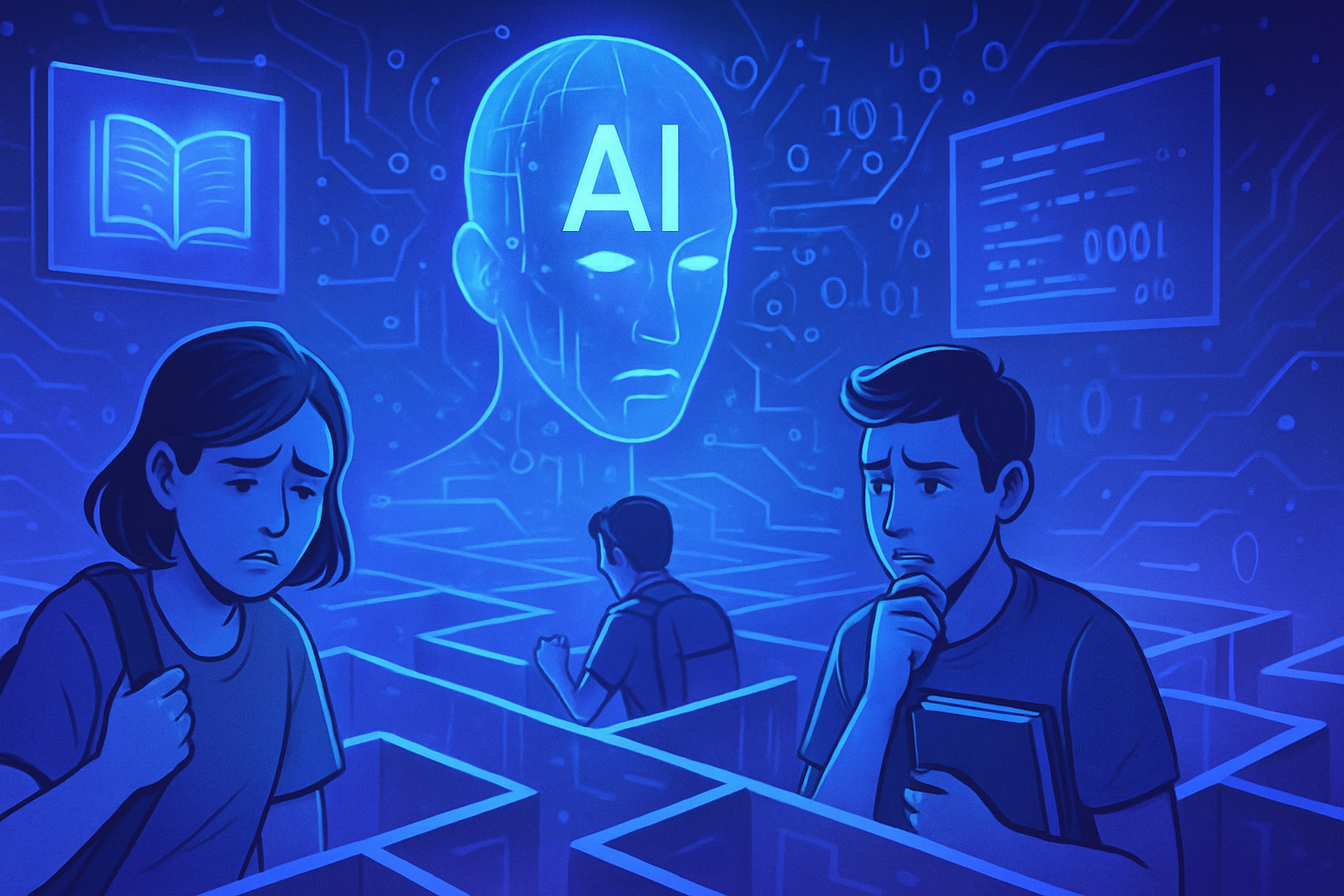The stigmatization of AI as a form of cheating threatens the quality of modern education. This distorted perception creates a cycle of pretense, where innovation clashes with distrust. Educational institutions must reconsider the role of artificial intelligences to integrate these technologies constructively. Adherence to preconceived ideas hinders intellectual development and perpetuates a restrictive view of learning. A strong academic approach fosters the use of AI tools while respecting fundamental pedagogical values.
The perception of AI as cheating
Generative artificial intelligences, such as ChatGPT, are often perceived as cheating tools by students. This distorted vision casts a shadow over the use of these technologies. The association between these tools and deception is reinforced by alarmist rhetoric that dominates educational institutions. Alarming figures show an increase in deviant practices, with students using them to get instant answers. The ability of AI to provide striking responses creates a climate of concern within institutions.
The issue of the educational framework
The educational system is facing an unprecedented crisis due to AI tools. Teachers must rethink their assessment methods and pedagogical approaches. A debate is emerging around the integration of traditional assessment methods in the face of the omnipresence of LLMs. Many voices are calling for a redefinition of educational standards. This adaptation is essential to avoid disqualifying students’ actual skills and to promote autonomous learning.
Normalization and pedagogical use
Normalization of the use of artificial intelligences is emerging as an indispensable solution. Educational institutions must establish clear modalities regarding the integration of these tools. The development of a precise usage charter could set acceptable limits for academic use. Promoting a conscious use, away from transgression, would help to defuse the situation. This would be a way to rehabilitate AI in a school context without submitting to authority or educational dogma.
Towards renewed assessment
Let’s rethink assessment modalities to face this challenge. Homework, traditionally at the core of the educational system, might require disqualification. Prioritizing oral exchanges in class as well as guided practical work would be beneficial. This approach would promote dialogue and knowledge sharing. By integrating AI into the learning process, teachers can redefine the assessment framework, thus transforming how students interact with their educational environment.
The role of education in the face of cheating
Educating students on the ethical and responsible uses of AI appears to be a priority. Informing young people about the consequences of cheating and the benefits of an honest approach can reduce deviant behaviors. It is necessary to confront students with ethical questions regarding the use of these technologies. Institutions must promote critical thinking, placing humanity at the center of all learning. Education should encourage thoughtful and constructive use of these tools, rather than stigmatizing their use.
Exemplary cases and initiatives
Initiatives around the world show a proactive approach to the issues of AI and cheating. In China, bold measures are being implemented to counteract fraud during end-of-year exams. Some institutions are making extra efforts to teach the digital skills necessary in the face of this evolution. These examples of initiatives show that a collaborative and thoughtful approach is possible. Adopting a mindset of innovation can transform the potential threat of AI into a tool for educational enrichment.
Psychological and cultural impact
The psychological repercussions of this perception of AI also affect students. Equating these technologies with fraud creates a climate of distrust that can manifest as academic anxiety. This attitude can lead to discouragement among students, making them feel a constant need to prove their worth. Social media and digital platforms exacerbate this anxiety, amplifying performance-related pressures. Creating an environment that encourages creative expression and collaboration is fundamental for sustainable student development.
For in-depth reflections related to the topic, you can consult the following articles: The illusion of success, Bold measures in China, LG Exaone, Young people and AI, Trust and AI.
Frequently asked questions about AI and education
Why is the perception of AI as a form of cheating concerning for education?
This perception can lead to a harmful integration of AI into the educational system, where it is not used as a learning tool but rather as a means to bypass intellectual efforts, distorting the educational process.
How does this view of AI as cheating influence student motivation?
By viewing AI as a form of cheating, students may lose motivation to actively engage in their learning, thinking that the use of intelligent tools distances them from acquiring necessary skills.
What are the consequences of this view on assessment methods?
A restrictive approach to AI can lead to rigid assessment methods, limiting teachers’ options for accurately evaluating students’ knowledge and skills.
How can we reorient this negative view of AI in education?
It is crucial to incorporate AI thoughtfully into the educational curriculum, promoting its use as a complement to learning rather than a substitute, while establishing clear ethical guidelines.
What are the risks associated with an alarmist approach to AI in schools?
An alarmist attitude can reinforce the stigma around AI, pushing students to view it as a prohibited tool and to engage in circumventing behaviors that harm their learning.
How can a broader understanding of AI improve education?
By adopting a positive educational approach, students can learn to use AI tools responsibly, developing both their critical thinking and digital skills while strengthening their autonomy.
How can teachers approach the use of AI in their classrooms?
Teachers can integrate AI into collaborative projects, encouraging students to use these tools as learning supports, while raising awareness of ethical implications and responsible use.
Why is it essential to distinguish between cheating and assistance in the context of AI?
It is important to clarify that AI can be a learning assistance tool, helping students better understand concepts, while cheating occurs when the tool is used to bypass personal effort without learning or understanding.






